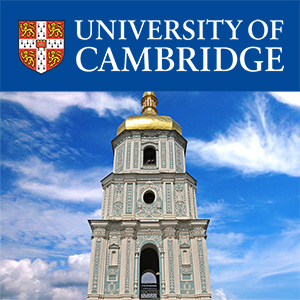Ukraine as an Object of Academic Knowledge and State Propaganda
Duration: 43 mins 54 secs
Share this media item:
Embed this media item:
Embed this media item:
About this item

| Description: | In this podcast, three scholars discuss the relationship between academic knowledge of Ukraine and state propaganda about Ukraine in Germany, France and Russia, respectively. The presentations were a part of the conference 'Ukraine and the Global Information War' organized by Cambridge Ukrainian Studies, an academic centre in the Department of Slavonic Studies at the University of Cambridge. Andriy Portnov, Tetyana Ogarkova, and Tanya Zaharchenko participate. Rachel Polonsky chairs the session, which took place on 31 October 2014 at King's College, Cambridge. |
|---|
| Created: | 2014-12-29 18:06 |
|---|---|
| Collection: | Cambridge Ukrainian Studies Podcast |
| Publisher: | University of Cambridge |
| Copyright: | R.E. Finnin |
| Language: | eng (English) |
| Keywords: | Ukraine; propaganda; Germany; Kremlin propaganda; war in Ukraine; France; Russia; Ukrainian politics; Maidan; disinfomation; |
| Abstract: | Ukraine has been described as a country 'in-between in all possible ways' (Mykola Riabchuk). Over the past year, in the midst of uprising and war, it has been caught between a Russian propaganda machine highly active in television, print and Internet media and a European public largely ignorant of its history and culture. Its own mediascape has been caught in a vice between state-run and oligarch-owned outlets. This crisis in representation has had profound implications for the development of a coherent security policy in Europe and for the resolution of an armed conflict in Ukraine that has now claimed thousands of lives.
In this podcast, three scholars discuss the relationship between academic knowledge of Ukraine and state propaganda about Ukraine in Germany, France and Russia, respectively. The presentations were a part of the conference 'Ukraine and the Global Information War' organized by Cambridge Ukrainian Studies, an academic centre in the Department of Slavonic Studies at the University of Cambridge. Andriy Portnov, Tetyana Ogarkova, and Tanya Zaharchenko participate. Rachel Polonsky chairs the session, which took place on 31 October 2014 at King's College, Cambridge. Highlights from the presentations: 'The main problem of German public discourse about Ukraine is that the country is portrayed, analysed and perceived only as an object... It is very difficult to find discourse casting Ukraine as a subject of its own story… This attitude is grounded in the Germany memory of the Second World War, which includes Russia but excludes Ukraine. In fact, Germans are often surprised to know that Germany occupied the entire Ukraine twice in the twentieth century.' 'There is a French intellectual tradition that plays in favour of Russian propaganda. Two factors are active here: the first is anti-Americanism… French public opinion is sometimes influenced by the logic of “the enemy of my enemy is my friend", and the enemy of the United States is Russia. As the famous historian Tony Judt put it with reference to the French Left of the 1940s and 1950s, "the overwhelming majority of writers, artists, teachers, and journalists were not for Stalin: they were against Truman. They were not for labor camps, they were against colonialism." And now we can say that the French intellectual community sometimes is not so much for Putin, but against Obama. The other factor is anti-Europeanism.’ 'What I am seeing now in Russia media coverage are three basic methods of portraying Ukraine: the first is the creation of the myth that Ukraine equals chaos. In Russian, for instance, we can use several words to denote 'uprising'; you can use ‘volneniia', you can use ‘besporiadki'… President Putin has used ‘pogromy' repeatedly and extensively in his remarks, because ‘pogromy' makes us feel very uncomfortable. The second is what journalists call the creation of a frightening alternative [to what prevails in Russia], which in this case is meant to be ‘fascism’... The third method is dehumanisation.' |
|---|---|
Available Formats
| Format | Quality | Bitrate | Size | |||
|---|---|---|---|---|---|---|
| MPEG-4 Video | 640x360 | 1.93 Mbits/sec | 638.17 MB | View | Download | |
| WebM | 640x360 | 556.2 kbits/sec | 178.91 MB | View | Download | |
| iPod Video | 480x360 | 519.76 kbits/sec | 167.12 MB | View | Download | |
| MP3 | 44100 Hz | 249.73 kbits/sec | 80.39 MB | Listen | Download | |
| Auto * | (Allows browser to choose a format it supports) | |||||

